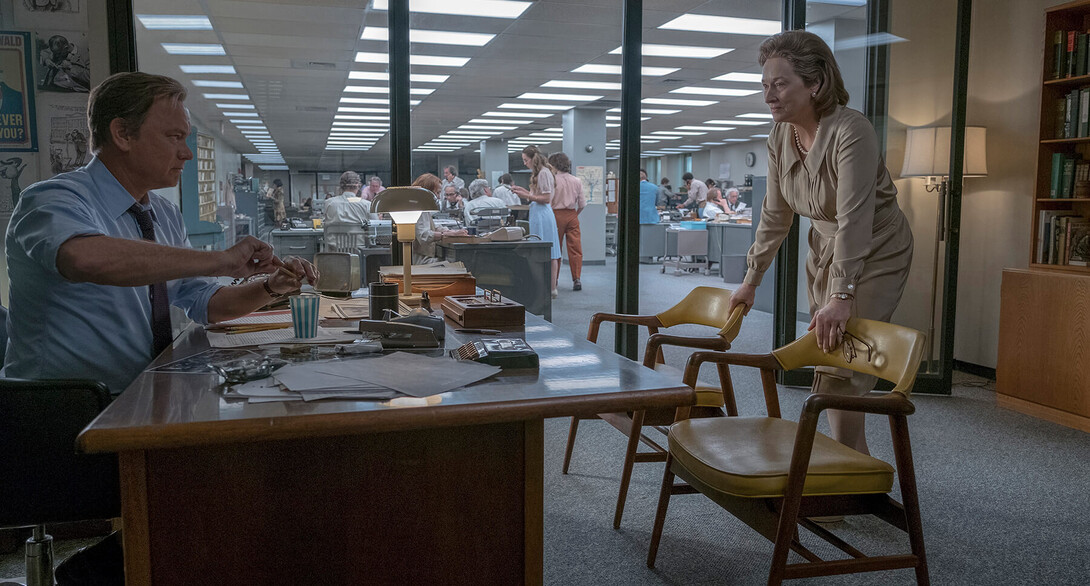
Nominated for a Best Picture award, “The Post” revisits a contentious period of American history.
The movie, which is currently in theaters, tells the story of how newspapers, most notably The New York Times and the Washington Post, received and published top-secret documents stolen from the government — known as the Pentagon Papers — and then fought the Nixon administration to the Supreme Court, where a landmark 6-3 decision fortified the freedom of the press.
The Pentagon Papers arose from a study commissioned by the Department of Defense that tracked the United States’ involvement in Vietnam from 1945 to 1967. Daniel Ellsberg, a military analyst who had worked on the report, leaked portions of the study to the media in 1971.
Nebraska Today talked with Patrick Jones, associate professor of history, about the importance of the Pentagon Papers and how the controversy informs us today. Jones’ comments were edited for brevity.

What was the most significant revelation of the Pentagon Papers?
Patrick Jones: The Pentagon Papers are massive. There are about 3,000 pages of text and 4,000 pages of documents. Rather than a single revelation, I think it was the accumulation of revelations and the broad narrative they told about American power and foreign policy in Indochina, as it was referred to at the time, and that the American people were not getting the straight story from United States officials. They had not been for a long period of time, stretching back all the way to the Truman, Eisenhower, Kennedy, Johnson and Nixon administrations.
(The papers revealed) American foreign policymakers were not being truthful, whether it was the Gulf of Tonkin, which got us into the war, or whether there was “light at the end of the tunnel,” and a victorious end was coming soon. (They showed) policymakers had had a sense early on that this was a war that was very difficult and unlikely to be won.
It was a time period when many Americans had great faith in the institutions of the government and the presidency, but as the war dragged on, people were becoming disillusioned. The Pentagon Papers confirmed the sentiment of some that the American people were not getting the truth, that policymakers and presidents had not been forthright.
What was the initial public reaction to their release, and how has public opinion changed?
It was a deeply contested moment in history, in the midst of the war in Vietnam. It was 1971, so the war was broadly unpopular, but not unanimously.
For the anti-war movement, it was confirmation of what they already believed or had a hunch about. It confirmed their worst fears.
On the other hand, the release of the Pentagon Papers was very controversial. These were secret documents that were stolen and then leaked to the media by a government worker, Daniel Ellsberg. He was either a hero or was reviled, depending on where people stood, politically.
The Nixon administration sought to stop the publication of the papers, which led to a Supreme Court case and a very famous 6-3 decision that set a very high standard for the government to ever halt the publication of information.
The release of the papers, as well as the court’s decision, were heavily debated. And you still see those debates play out today, such as with stolen documents on WikiLeaks.
I think we are still debating the role of whistleblowers and where the balance is between the need for secrecy and the need for a democratic people to have access to information to have discussions and make decisions. It is an ongoing discussion
Watergate followed on the heels of the Pentagon Papers release. How were these events intertwined?
(President Richard M.) Nixon was upset about the release of the papers, even though they were mainly about the administrations before him. He was still fearful because he’s got quite a bit going on in his own administration that is problematic.
Ellsberg expected to end up in prison, but the charges against him and a co-conspirator were dismissed when it was found out that Nixon had sent The Plumbers – the same group that broke into the Watergate building – to Ellsberg’s psychoanalyst’s office to steal records for blackmail. The judge found that out and dismissed the charges against them.
The papers became part of the expanding investigation and part of the broader narrative that brought down the Nixon administration.
Watergate undermined people’s faith in the government and the presidency, and the Pentagon Papers and Vietnam, in general, did that, as well. Something broader that happened during the 1960s and coming out of the 1960s, was that the curtain was drawn back on the Wizard of Oz, so to speak, which led to a lot of people to become cynical about the government and presidency. I would put it a bit differently, though. It’s not our job to simply have faith in the government, but for the government to demonstrate to us what they’re doing. It’s our job – and the press’s job - to continuously ask the hard questions of the government.
What is the legacy of the Pentagon Papers, nearly 50 years later?
Asking the tough questions is a patriotic duty. They are central to the health of our democracy. Much like the present, the Nixon administration was one to bash on other aspects of the government, on the media, and to villainize the media for doing its job. We need to have respect for the different pieces to our democratic puzzle. For us as citizens, we have to keep raising the questions and keep debating these things and discussing them. That’s where the work of democracy is done.







